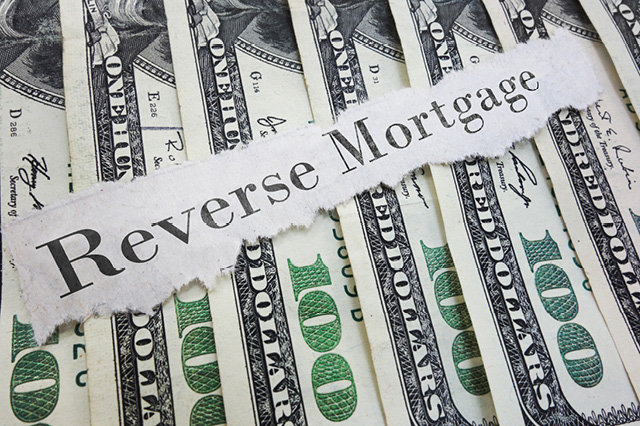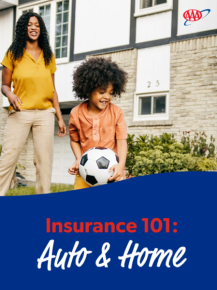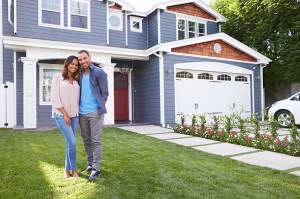Reverse mortgages are not something most people think about. After all, you are not eligible to receive this loan until you’ve reached 62. But if you’re coming close to retirement age and want to stay in your home for the rest of your life, it’s an option you might want to consider.
“It’s definitely something to learn about sooner rather than later,” said Steven Vieira, AAA Northeast’s director of mortgage operations and sales. “You don’t want to be in a jam where, at 78 years old, all your savings are gone, you have mounting medical bills, the house needs repairs, but you have no way of accessing the equity of your home anymore because you don’t qualify based on your income and credit situation.”
Here are a few of the benefits a reverse mortgage can provide to ensure you’re enjoying your golden years securely and comfortably.
Reverse Mortgages
A home equity conversion mortgage (HECM) is a mortgage that allows homeowners age 62 and up to gain access to the equity they have built up in their home in the form of tax-free loan proceeds.
Home equity is the difference between the value of the home and any debt owed on it from previous mortgages. For example, if your home is worth $500,000 and you owe $75,000 on the mortgage, you’ll have $425,000 of home equity.
With a traditional mortgage, you make monthly payments to pay down the debt until you no longer owe anything. But a reverse mortgage allows you to receive the equity of your home as payments, which you can choose to receive monthly, as a line of credit or as a lump sum.
A reverse mortgage will not need to be paid back until the homeowner dies or moves out of the home. When the house is sold, the proceeds are used to pay back the loan.
Financial Benefits
If you are on a fixed budget or under financial stress, a reverse mortgage can be a lifeline by ridding you of debt and increasing your monthly cash flow.
A reverse mortgage frees you from the burden of monthly payments. This can give you access to a significant amount of money each month. “Borrowers may be interested in supplementing their monthly income by setting up monthly direct deposits from their reverse mortgage,” says Julia Braun, a Reverse Mortgage Consultant for AAA. “They can customize the amount, term and even have the option of setting up a tenured monthly payment, which is guaranteed for life.”
Staying in Your Home
Many seniors want to remain in their homes for the rest of their lives. However, that’s not always possible and not just because of finances.
Some people with a reverse mortgages choose to spend a portion of the funds on updating their homes, such as renovating the kitchen or adding a patio. However, as you get older you may need to retrofit for your home to ensure you can move around safely.
The most common home improvements for seniors are installing a wheel chair ramp, adding a walk-in tub or shower, stair lift installation, widening entrances and hallways and adding handrails. Each of these jobs can cost thousands of dollars. It’d be very difficult to afford an adequate retrofit of your home on a retirement budget. But reverse mortgages remove the expensive monthly payment of a mortgage and put more funds in your own account. Now, improvements to your home are a much easier expense to pay for.
Regardless of how you may choose to have your reverse mortgage work for you, AAA is here to answer all of your questions.
Are you considering a reverse mortgage? AAA’s dedicated experts are here with trusted, and reliable step-by-step assistance along the way, all from the comfort of your own home. Speak with a AAA reverse mortgage consultant today.
One Thought on “How a Reverse Mortgage Can Get You Through Uncertain Times”
Leave A Comment
Comments are subject to moderation and may or may not be published at the editor’s discretion. Only comments that are relevant to the article and add value to the Your AAA community will be considered. Comments may be edited for clarity and length.














Eventually, though, you have to pay up when you leave, or use the proceeds from the sale of the house to pay off your mortgage, assuming the sale price is enough. Or your reverse mortgage equity payments aren’t sufficient after all. And if you don’t make any payments on this type of loan, the interest will build as long as you stay in your home. A better way in my opinion, if possible, is to downsize to a smaller home or condo. Sell your home, pay off your mortgage, purchase a less expensive home that has less upkeep, lower property taxes and other expenses, and you might even have some money left over that you can live on or invest for a steady income. Or, if you need more cash, rent instead of purchasing another property, or sell your new home for extra cash when the time comes. Most people who are older empty nesters are paying way too much for too much house. It’s lovely to have the room so that the kids and grandkids can come to visit and stay over, but not if you’re struggling to pay bills. Best to know when to let go and start the next, financially more secure, chapter of your life. And you can look for something close to the kids and grandkids. Yes, making a move at this stage of life can be a bit jarring, but so can money worries. You have to weigh your options before making such a major decision, either way.